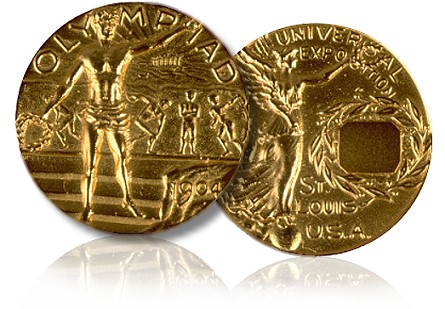 In honor of the summer Olympics, I have to do a couple of posts about the events in London. I find myself particularly interested in the U.S. athletes who are back for a second, third or fourth stab at the Games after they’ve already won gold. People like Michael Phelps (swimming), Kerri Walsh and Misty May (beach volleyball), Laura Wilkinson (diving). I’m sure there are many more. I single these athletes out because competing in their sports at the international level becomes much harder as one ages, unlike in some other sports like the equestrian and sailing events where age and experience can be a plus. What drives the Phelpses and the Kerri Walshes to keep at it? Is it courage, hubris or fear that keeps them coming back every four years?
In honor of the summer Olympics, I have to do a couple of posts about the events in London. I find myself particularly interested in the U.S. athletes who are back for a second, third or fourth stab at the Games after they’ve already won gold. People like Michael Phelps (swimming), Kerri Walsh and Misty May (beach volleyball), Laura Wilkinson (diving). I’m sure there are many more. I single these athletes out because competing in their sports at the international level becomes much harder as one ages, unlike in some other sports like the equestrian and sailing events where age and experience can be a plus. What drives the Phelpses and the Kerri Walshes to keep at it? Is it courage, hubris or fear that keeps them coming back every four years?
Those three attributes might seem leagues apart, but they’re not. On some levels, it’s courageous to keep putting yourself out there, competing with younger folks who may well clean your clock. Look at Dara Torres trying to make the Olympic swimming team at forty-five. On the plus side, she’s in fabulous shape. (Many women her age would rather shave their heads than appear on national television in a bathing suit.) On the downside, what else could older athletes have accomplished with their lives if they hadn’t spent so much time training to international standards? One can stay healthy and fit and enjoy a sport without putting in the thousands of hours a year required to be an Olympic-caliber competitor.
Maybe it’s hubris that keeps them coming back, the conviction that they’re the best and that the Olympics are somehow lesser if they’re not participating. Certainly, NBC makes a lot of hay out of profiling known names, creating rivalries that may or may not exist between debut competitors and more seasoned athletes, and speculating endlessly on whether Athlete A or B still has his or her edge and competitive drive, whether they’re still “up” to it. Hubris might lead some athletes to think they need to have more medals than anyone else in their sport, or more gold medals, or more Olympic medals than whole countries have earned in toto. (Think teeny tiny island nations who never send more than two or three athletes to the Games.)
As to fear, some athletes may be afraid of falling out of the limelight, afraid to find out who they are if they’re not defined by their sporting prowess anymore, or afraid that their sponsorship and advertising opportunities will diminish if they don’t keep hauling in the medals. (The latter may well be true, but that day is bound to come. I can see why they want to optimize their earning potential while they can.) The second fear is, to my mind, the most significant. Many people face that problem head-on in their sixties, when they retire from their jobs. Athletes, with a few lucky exceptions, have to redefine themselves much earlier, when their bodies are no longer up to the rigors of international competition. Some go gracefully. Some wait too long. Some segue seamlessly into coaching or other jobs associated with their sports (judging, commentating, etc.). Others make the leap to completely different vocations. Eric Heiden, the speed skater, for instance, became a doctor.
Maybe some show up every four years because it’s just damn fun. I suspect Kerri Walsh may feel that way. She just looks like she’s having fun, on court and off. Michael Phelps not so much. I don’t know if the athletes’ motivations matter to those of us watching, but it’s interesting to speculate nonetheless. Which athletes should hang it up already? Who do you like to see every four years?


